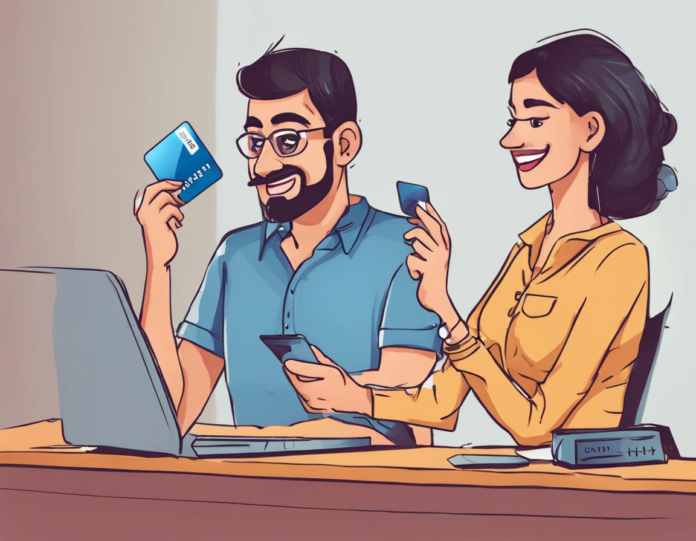Credit cards have become an indispensable part of modern-day financial transactions. They offer convenience, flexibility, and various perks to users, making them a popular choice for making purchases both in-store and online. However, understanding the basics of credit cards is essential to use them effectively and avoid falling into debt traps. In this comprehensive guide, we will delve into what credit cards are, how they work, the benefits and drawbacks, and how to use them responsibly.
What Is a Credit Card?
A credit card is a plastic card issued by a financial institution that allows cardholders to borrow funds to pay for goods and services. Unlike debit cards that are linked to a checking account and draw upon the available balance, credit cards provide a line of credit that users can utilize for purchases, subject to a pre-set limit.
How Do Credit Cards Work?
When you make a purchase using a credit card, you are essentially borrowing money from the card issuer, with the promise to repay the borrowed amount at a later date. The amount spent using the credit card is reflected in your monthly statement. Cardholders have the option to pay the full outstanding balance or a minimum amount due by the due date to avoid late fees and interest charges.
Types of Credit Cards
There are various types of credit cards available to cater to different needs and preferences. Some of the common types include:
Rewards Credit Cards:
These cards offer rewards such as cash back, points, or airline miles for every dollar spent using the card.
Travel Credit Cards:
Designed for frequent travelers, these cards offer travel-related perks like airport lounge access, travel insurance, and bonus points for travel-related expenses.
Balance Transfer Credit Cards:
These cards allow users to transfer high-interest debt from one credit card to another with lower or 0% interest for a promotional period.
Secured Credit Cards:
Secured credit cards require a security deposit, which also determines the credit limit. They are ideal for individuals looking to build or rebuild their credit history.
Pros and Cons of Credit Cards
Benefits of Credit Cards:
- Convenience: Credit cards are widely accepted by merchants worldwide, making them convenient for making purchases.
- Rewards: Many credit cards offer rewards, cash back, and other perks for using the card.
- Build Credit: Using a credit card responsibly can help individuals establish and improve their credit score.
- Fraud Protection: Credit cards offer better protection against fraud and unauthorized transactions compared to debit cards.
Drawbacks of Credit Cards:
- Interest Charges: Failing to pay the full balance on time can lead to high-interest charges on the remaining balance.
- Overspending: The ease of using credit cards can tempt individuals to overspend and accumulate debt beyond their repayment capacity.
- Annual Fees: Some credit cards come with annual fees, reducing the overall benefit if not adequately offset by rewards.
How to Use Credit Cards Responsibly
Tips for responsible credit card use include:
- Paying the full balance: To avoid interest charges, try to pay the full outstanding balance by the due date each month.
- Monitor spending: Keep track of your credit card expenses to avoid overspending and stay within your budget.
- Avoid cash advances: Cash advances on credit cards attract high fees and interest rates, so it’s advisable to avoid them.
- Understand terms and conditions: Familiarize yourself with the credit card terms, including interest rates, fees, and any applicable rewards programs.
Frequently Asked Questions (FAQs):
1. How does a credit card affect my credit score?
Using a credit card responsibly by making timely payments and keeping credit utilization low can positively impact your credit score. On the other hand, missing payments or maxing out your credit limit can hurt your credit score.
2. What is the difference between a credit card and a debit card?
A credit card allows you to borrow money from the card issuer to make purchases, which you need to repay later. A debit card, on the other hand, deducts money directly from your checking account when you make a purchase.
3. How can I avoid credit card debt?
To avoid falling into credit card debt, it’s essential to spend within your means, pay the full balance each month, and avoid unnecessary purchases. Setting a budget and tracking expenses can help prevent overspending.
4. Is it advisable to have multiple credit cards?
Having multiple credit cards can be beneficial if you can manage them responsibly. It can offer more flexibility, higher credit limits, and diverse rewards. However, it’s crucial to keep track of multiple due dates and expenses to avoid debt accumulation.
5. What should I do if my credit card is lost or stolen?
If your credit card is lost or stolen, report it immediately to the card issuer to freeze the account and prevent unauthorized transactions. Most credit card issuers provide 24/7 customer service for such emergencies.
In conclusion, credit cards can be powerful financial tools when used wisely. By understanding how credit cards work, the different types available, their pros and cons, and adopting responsible usage habits, individuals can leverage the benefits of credit cards while avoiding common pitfalls like debt accumulation and high-interest charges. Remember that knowledge and discipline are key to maximizing the benefits of credit cards and maintaining healthy financial habits.









